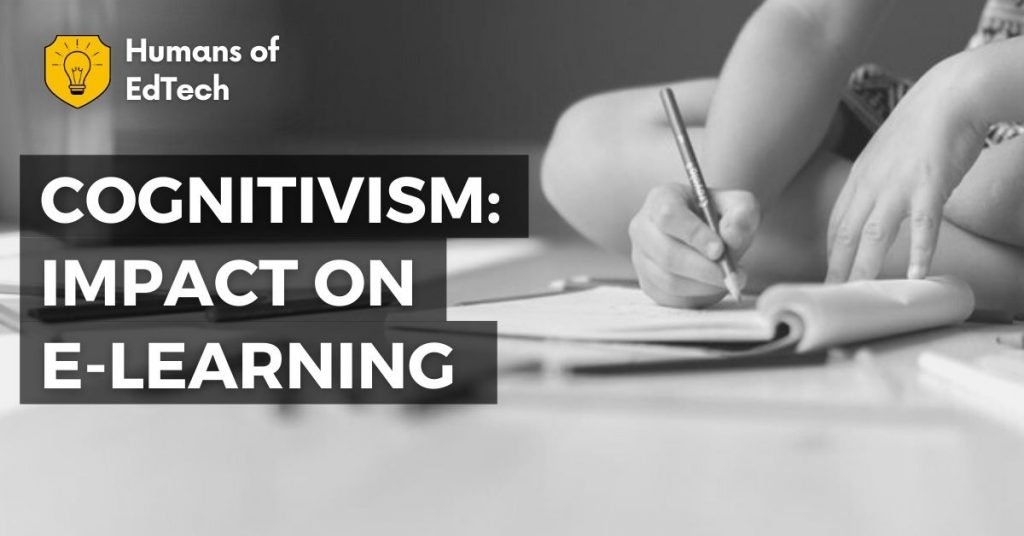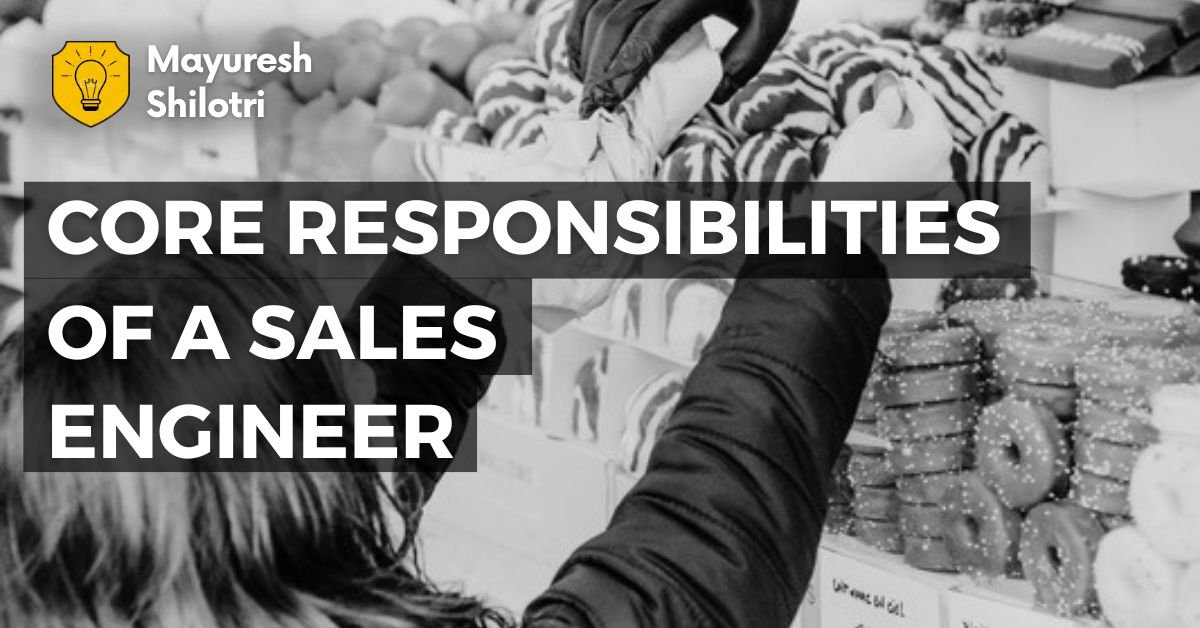Cognitivism is an analytical framework for understanding the human mind. It came into light in response to Behaviorism. Here in this post, we are going to look at what is cognitivism, what essentially is the impact of cognitivism on the learning process, and more specifically on adult learners, and also look at how the elearning happens in this particular school of thought.
- WORDS:1002
- TYPE:Post
- VIDEO:1
- SLIDES:None
- TOPIC:Humans Of EdTech
- TIME:6 Minutes
Hey guys welcome once again to another episode of Humans of EdTech. In this particular episode, we are going to look at cognitivism on EdTech. More specifically, on the teaching learning process, even more specifically, the impact on the adult learners for the learners which are grown up.
This is the second part of the video series, the first part we looked at the first school of thought that we visited, which was behaviourism. So let’s quickly jump into cognitivism.
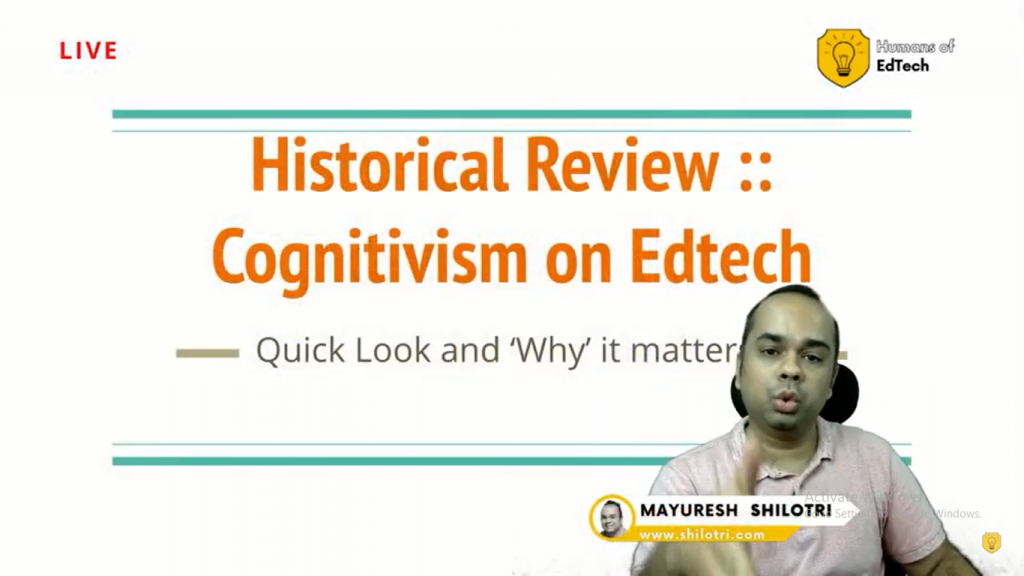
What is cognitivism?
Well, let’s just make things super simple. Socrates very clearly pointed out that “I cannot teach anybody anything, I can only make them think.” I think this is at the heart of what very simply put cognitivism is and I’ll just, maybe walk through a couple of more slides where I’ll put in some more formal definitions or try to bring it out in much more detail.
But in simple words, everything that you learned in behaviourism, where you have stimulus, and you have a response, where you treat, you look, to observe the external observable behaviour, and you work on it with respect to modelling behaviours going on, so forth.
Plus, we also look at the nature of the learner, the mental state activities, how the court transforms, reacts, rehearses, investigates, and retrieves information. So we give value to their thoughts, beliefs, attitude, and all of those in behaviourism.
So if you can just look at it, this is in very simple words stacked up on top of behaviourism, with a lot more loaded features, so to speak. But it takes into consideration a few more of these emotional things to learners.
All of us at different points in time have looked at Bloom’s taxonomy. What this essentially says is, and let me just make it very simple rather than complicating this, I don’t want to make it sound like another taxonomy or hierarchy or anything of that sort.
But when you consume anything, that is a new piece of information or material, you first start by remembering it, then you maybe understand a bit of it, you remember it, you understand it, then you start applying it. Okay, this is what I’ve learned, this is what I’ve understood, can I apply it somewhere, then you actually deliver critical appreciation of the data start analysing it, once you analyse it, maybe you develop a point of view, and you are evaluating whether this is really something that I should be using for this particular use case
And finally, I think you are able to create a hybrid, or something that is a value add on top of it and have completely new constructs based on that. So if you saw I just traversed the pyramid from bottom to the top, and I just took that this is how we are going to possibly break down, understand or build on top of any new learning that you have had. This again, is at the heart of what cognitivism is all about.
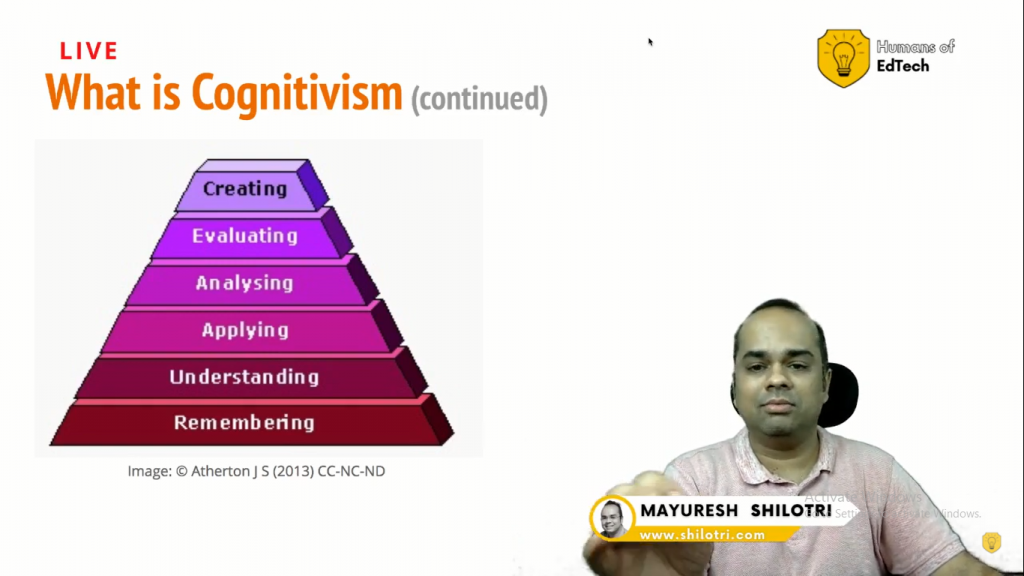
It’s all about observing, classifying, categorising, being interactive, perceiving things, reasoning with it, it’s not the learner over here is not taken to be someone who’s like a Pavlov’s dog, who can be conditioned on the basis of a stimulus and a response.
But essentially, he or she has a role to play with respect to bringing in various aspects of his or her own personality, in observing, reacting, quizzing, responding to what is essentially out there. That’s what cognitivism is all about.
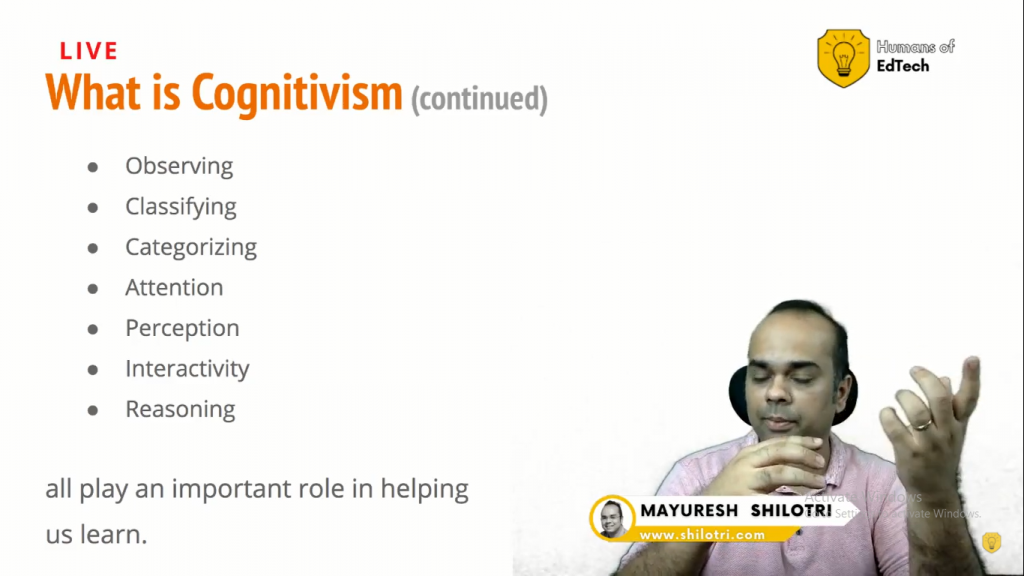
What is the impact of cognitivism on elearning?
So what’s the impact on learning so if you look at anything that is intelligent tutoring systems, that has adaptive learning paths, you want to communicate, what are the learning outcomes ahead of time to learners and help them continue, and they pick up some of these things on the fly.
So that’s all something that is part of the impact that cognitivism has had on elearning. So problem based learning, having a predetermined set of outcomes, you’re communicating it very strongly to people. So that’s all, an impact of this particular school of thought that it has had.
So whenever you see a custom learning path, whenever you see a learning path that is personalised for you, that is because of this particular school of thought, and this is something that is an evolutionary response that we have had over a period of time.
Repetition, skimming, self paced learning where you’re able to interact with the online environment at your own pace in your own way in the appropriate whole environment, you adapt it in your own personally meaningful way.
You participate in threads, collaborations, ask questions, respond, upvote, downvote, ask memos, questions anything that is like a red light feature that’s all overhears self notes collaboration private public sharing social sharing all of these things these features essentially have their roots with respect to teaching learning, with respect to education, with respect to elearning in this particular theory.
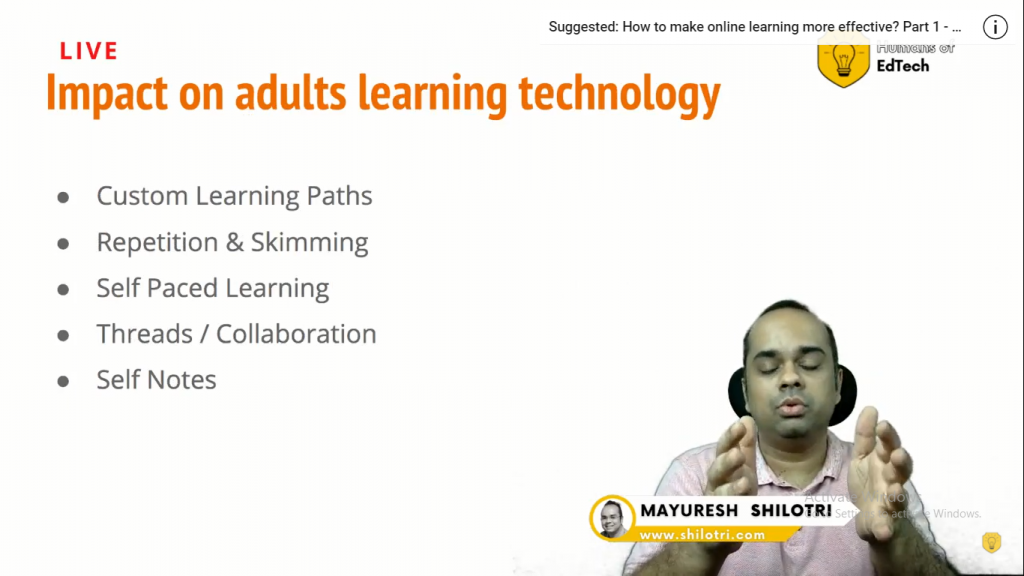
I hope this serves as a very simple and a gentle introduction to behaviourism is all about. There’s more that’s coming up so stay tuned.
Do follow me on this particular website that’s right here and stay tuned on the Linkedin channel so that i can share the best and the latest from the Humans of EdTech to you and i will see you soon thank you so much bye
Photo by Sarah Dietz from Pexels.
Join to get sneak peek into what's happening
I write about books, experiences, product, UX, EdTech, early stage growth, validation – mostly tech. Subscribe if these topics interest you. Once every 15 days emailer. I promise – No spam. (I am known for it otherwise) 😉
